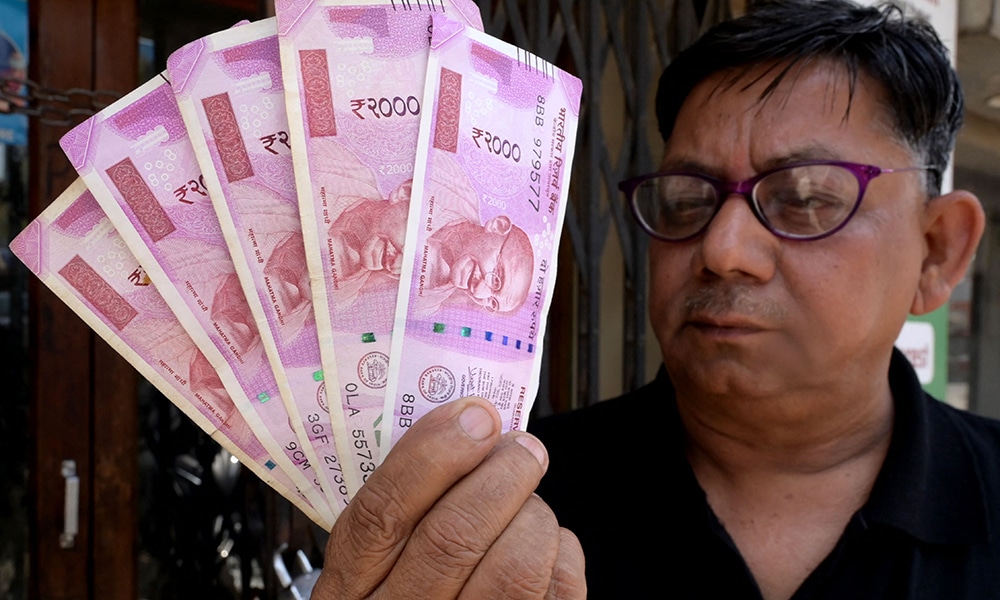MUMBAI: India’s central bank sought to calm the public after its decision to withdraw its highest-value currency notes from circulation triggered alarm about financial stability. The Reserve Bank of India announced on Friday that it would eliminate Rs 2,000 ($24) notes, instructing the public to exchange or deposit them at banks by the end of September.
The RBI added the notes would remain legal tender, though it did not clarify for how long. The cash withdrawal, which begins on Tuesday, echoed Prime Minister Narendra Modi’s controversial decision in 2016 to invalidate Rs 500 and Rs 1,000 notes overnight, which were equivalent to more than 80 per cent of currency in circulation. RBI governor Shaktikanta Das on Monday downplayed comparisons with the demonetization in 2016, calling the Rs 2,000 note withdrawal part of regular “currency management operations”.
“Let me clarify and re-emphasize that it is a part of the currency management operations of the Reserve Bank. For a long time, the Reserve Bank has been following a clean note policy,” said Das.
“From time to time, RBI withdraws notes of a particular series and issues fresh notes...we are withdrawing the Rs 2,000 notes from circulation but they continue as legal tender.”
The RBI governor added that the September deadline had been granted so that the “process will be taken seriously”. Das emphasized that Rs 2,000 notes were primarily issued in circulation to quickly replenish the value of money which was being taken out from the system.
The RBI governor was referring to the botched ‘demonetization’ process initiated in 2016 by the central bank where old Rs 1,000 and Rs 500 notes were taken out of the system. Purportedly a crackdown on illicit and untaxed “black money”, the dramatic move forced people around the country to rush to banks to trade in their notes. “I do not expect a rush to the bank branches,” he said. “There’s no reason to rush to the bank.” The RBI said Rs 2,000 notes were introduced as a temporary measure to boost cash supplies after the 2016 demonetization and that it had stopped printing them in 2019. The notes were not “commonly used for transactions anymore”, the central bank said, adding that they accounted for about 10 per cent of currency in circulation. Analysts said although the announcement was unlikely to disrupt India’s economy as in 2016, it would ripple through markets as businesses and households handed in their notes. The rupee weakened 0.05 per cent against the dollar in morning trading in India on Monday. Economists and businesses have fiercely debated the legacy of the demonetization policy. While it helped funnel money into the formal financial sector, it caused enormous pain to cash-reliant small businesses that weighed on growth for years afterwards, according to some experts. The RBI did not cite corruption as a justification for its latest move to recall the Rs2000 notes. – Agencies











